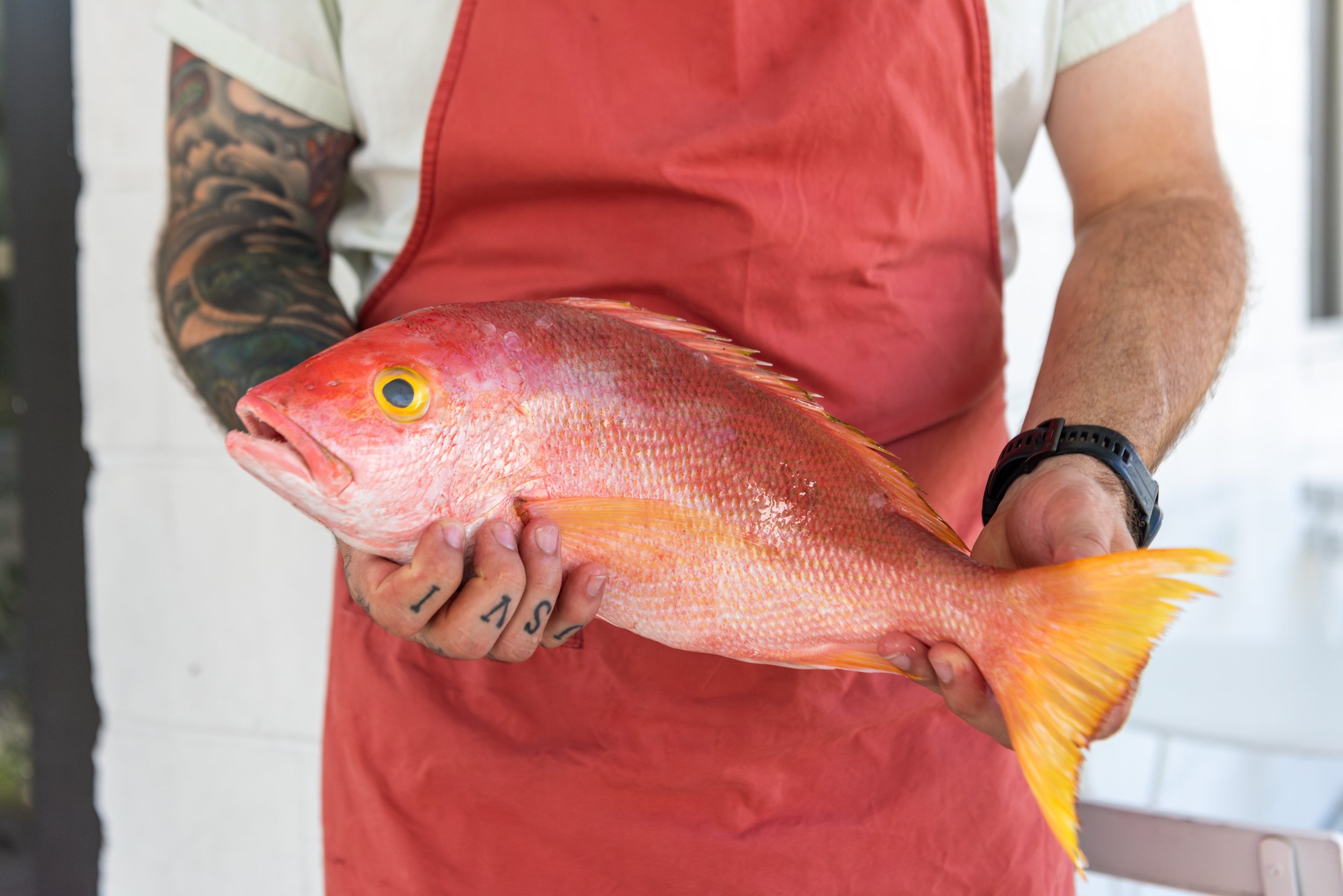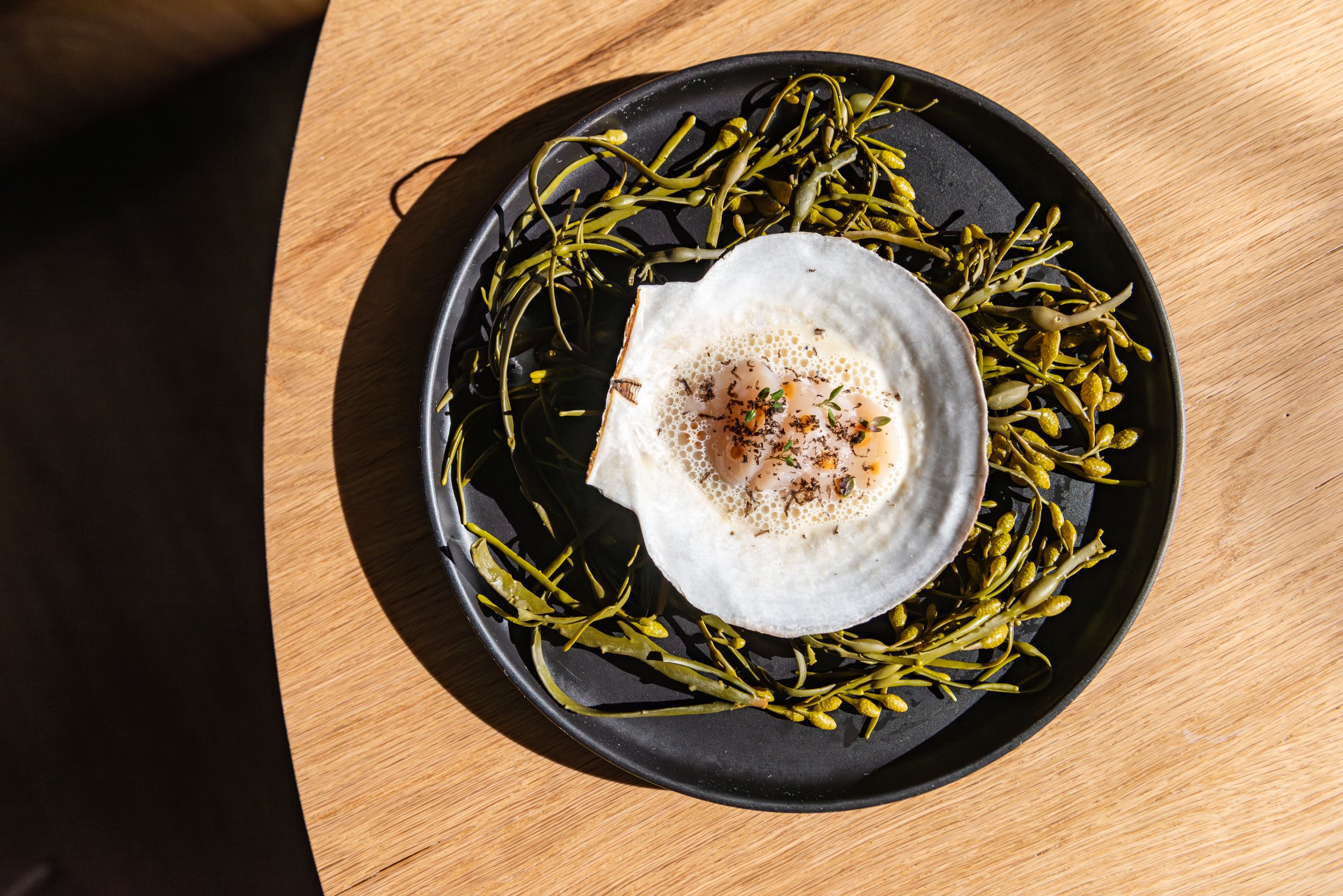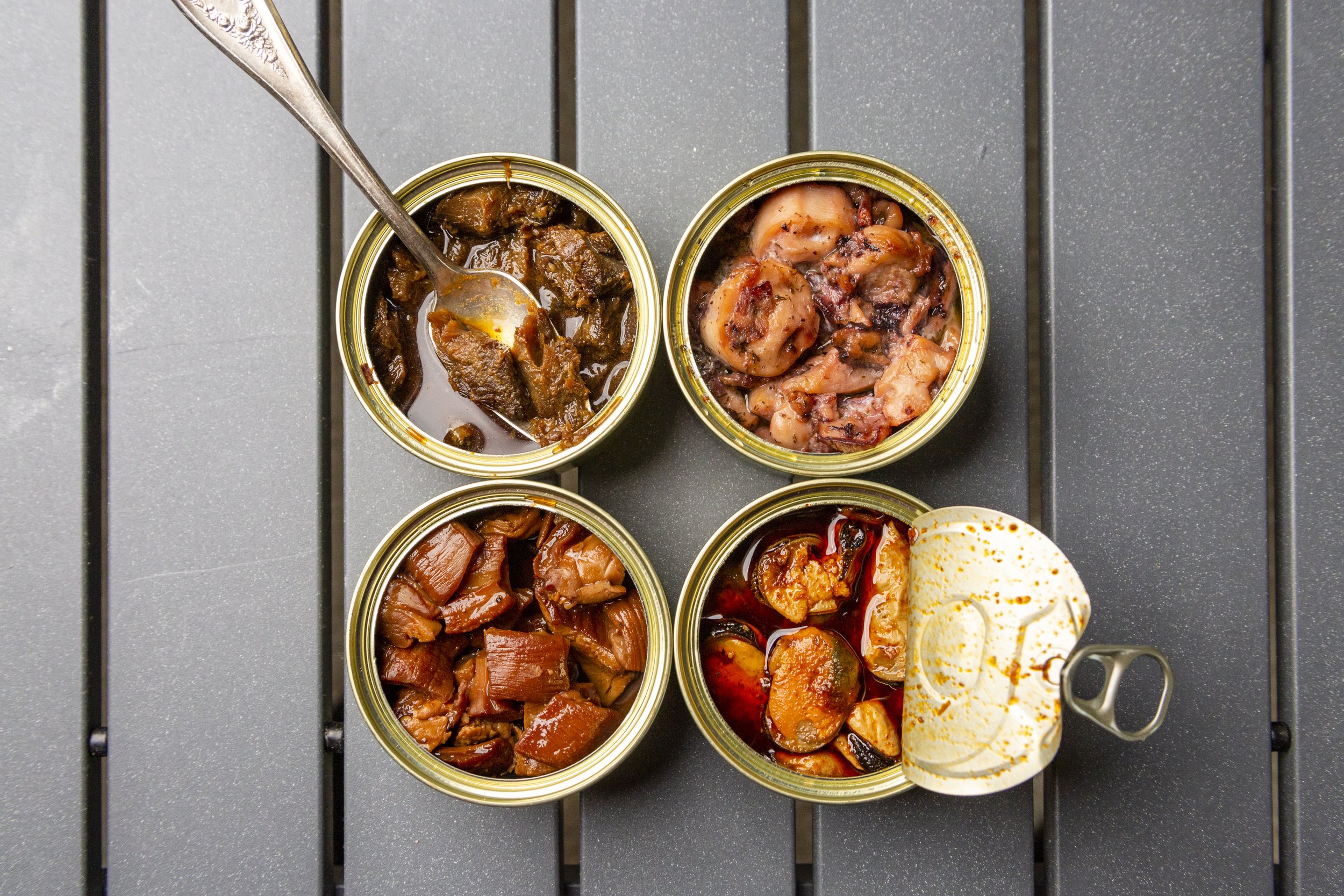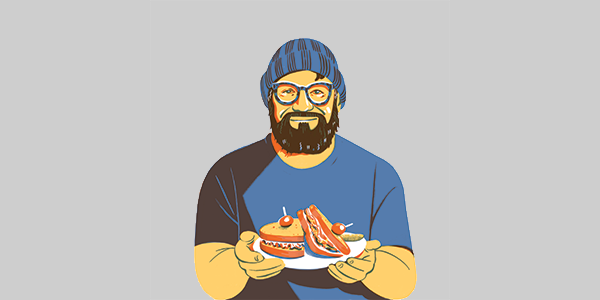Changing Tides: CudaCo.'s Vision for Sustainability
Chefs Shaun Brian Sells and Chris John use their seafood house to stand up for South Carolina’s coastal ecosystems.
Chefs Chris John and Shaun Brian Sells of CudaCo. | Photos: Will BLunt
Shaun Brian Sells has always been a person of action. He was raised that way in the tropical landscape of St. John, U.S. Virgin Islands, learning from his mother at an early age how to forage from the forest, repair instead of replace, and respect the rhythms of nature to stay safe and thrive.
“When I hear the word ‘sustainability,’ lots of times what I see is just surface level,” he explains. “It’s not just recycling or using compostable straws, for instance. For most of my life, sustainability has been a deeper daily action, of paying attention to the ways we live in the world and run a business, where everything affects everyone.”
He made his life as a chef by staying close to the sea, with tenures at various coastal locations including The Ritz-Carlton, St. Thomas and Water Street inside the Harbor View Hotel on Martha’s Vineyard. Now in Charleston, he aims to collapse the divide between diner and chef at CudaCo., a creative third space he founded with his partner Chris John, a seafood wholesaler.
Housed inside a former fish market on James Island, the foundation for everything they do is their shared love of coastal ecosystems and a desire to celebrate and protect them.
“We have such an amazing ‘aquarium’ here in the region,” says John, referring to the diversity of seafood that fishermen are able to catch. “It’s very special, and that’s where everything starts for us.”
The centerpiece of CudaCo. is its by-the-pound raw seafood case, and John and Sells work directly, but not exclusively, with local fishermen, selling shellfish and fish—ranging from snapper to tuna to hogfish—that extend beyond the narrow scope of species most Americans are used to eating. The variety of offerings act as a catalyst to share seafood knowledge with both the staff and guests.
“The education happens somewhat organically,” John says. “As the seasons shift, the product coming through the door changes. We talk to the staff about the product, how and why we carry it, and we are always transparent about where we source it, something that I’ve done since beginning my wholesale business, Oyster Point Seafood Company, years ago.”
“From that point, it’s all about responding to customer questions.” By its very nature, CudaCo.’s offerings change the conversation, and responding to “Hey, is this salmon local?” (their most common question in a region that doesn’t have salmon swimming in it) becomes the beginning of a new and different conversation rather than merely a “yes” or “no” answer.
Beyond the seafood selection, Sells focuses on getting consumers to consider eating fish in a more sustainable way. One prime example is the CudaCo. tuna bloodline skewers. An average tuna has between four to six pounds of bloodline meat that would usually be discarded due to the cut's longer processing time and its extra fishy flavor. So, Sells has spent the last 15 years perfecting these bites and transforming it into a delicacy.
“Every time someone asked about the skewers, we offered to cook one,” he says. “Now, we can’t keep them in the case. Anytime we have tuna bloodline skewers, they sell out quickly.”
Leaning into John’s roots, oysters are also a big part of CudaCo., and they offer both wild harvested clusters and singles as well as farmed selects from local and East Coast purveyors. “I’m proud to say that we offer both, because wild clusters are the heart and foundation of South Carolina seafood culture,” John explains.
CudaCo. sells wine and beer and offers a small eat-in menu that includes caviar, fried calamari, and a fried fish sandwich with a cult following. The market also has a grab-and-go case of prepared seafood items ranging from seafood salads to condiments. And through it all, they center sustainability whenever possible, from the edible plants used as landscaping to recycling fish scales for use as fertilizer by local farmers. “I’m always moving toward the idea of zero waste,” says Sells.
At the moment, they are using more sustainable options for takeaway containers, and working that into the cost of the item, but not working it into the profit. “I’m looking at prices, how that trickles down to employees for more competitive pay, for sustainability for them but also helping sustain CudaCo. through employee retention. At the same time, [I'm] making sure I’m also creating return demand for our guests by keeping the prices in line.”
CudaCo. not only educates, but also listens, and guest requests for an expanded experience have led to the building of the CudaCo. Deckhouse, which is slated to open by the end of the year. The 50-seat counter service restaurant will offer a larger menu as well as a full bar. Sells and John have worked alongside the construction team, repurposing many elements of the second existing building on the property instead of gutting it for a full remodel.
Plans also include a mercantile that carries a variety of tinned seafood, sparkling wines, and CudaCo. merch. ”I started thinking,” says John, “how can we keep people engaged with our brand beyond a visit? And how can we support our mission and our community?” CudaCo. partners with local artists for their designs, and they also sell a line of coolers made out of recycled plastics. “We are the end user for a lot of plastic, receiving three or so seafood shipments a day.” It’s just another way the seafood sellers are diversifying revenue streams.
Sells and John continue to remain creatively energized with the numerous projects that CudaCo. encompasses—and there is a lot they still want to do—but Sells stresses that they will take it slow as a business. “We have a lot of ideas to continue to grow from here.” By continuing to champion local product and build lasting relationships with those that grow, catch, and make them, Sells and John are on their way to pushing CudaCo. beyond the food space and into a lifestyle brand.








